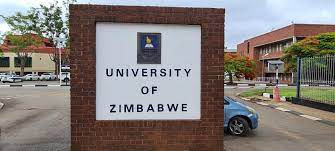
OVER the past few years, African institutions of higher learning like colleges and universities have added innovation to their mandate of generating higher level expertise, knowledge and skills.
To that end, they have made some headway in research, innovation as well as developing prototypes on food preservation and other technologies that support food supply chains.
In the case of Zimbabwe, such institutions include Bindura University of Science Education, Chinhoyi University of Technology, Harare Institute of Technology, Marondera University of Agriculture, Science and Technology, University of Zimbabwe, Women’s University in Africa and several polytechnics including teacher training colleges.
Collaboration hastens development of agribusiness models
While innovative work by tertiary institutions is quite commendable, more can be achieved if their efforts are consolidated into one big national framework embracing agricultural commodities supply chain technologies, research and innovation.
Unfortunately, instead of collaborating, most of these institutions have been competing to produce the same products like fruit juices and water only with different names.
Adoption and utilisation of research-backed technologies will empower communities that produce fresh commodities like fruits and vegetables in abundance.
It is now known that African mass markets aggregate and distribute more than 80% of the African food commodities.
- Africa hit hard by high e-waste pollution
- Africa is paying dearly for the Russian/Ukraine conflict
- Pathways for repurposing resources are long overdue in developing countries
- Poor co-ordination makes it difficult to see where African food systems are going
Keep Reading
When scientific research and innovation at colleges and universities are consolidated, it becomes a reliable avenue for developing national apprenticeship models closely linked to food supply chains and the food industry.
That way, these models will become a strong base for applying and refining food systems innovations and technologies towards converting smallholder farming and market supply chains into commercial self-sustaining business models.
One of the major challenges is that academic theory and literature in African colleges and universities is not creating space for piloting and up-scaling their research products and innovations towards meaningful contribution to the food industry, supply chain and national economic development.
For instance, there is a big gap between college or university graduates and requirements of the evolving industrial landscape.
Industrial attachment programmes are just a small and insignificant part of what the graduates will face in the real food and supply chain industry world as they graduate and try to build their careers around what they studied.
This is because the curricula are not yet fully informed by the local industrial needs.
College and university curricula remain too rigid and not fluid enough to adapt to the fast-changing industrial landscape typified by mass markets and small-and-medium enterprises (SMEs).
Reviewing curricula after five years does not meet the fluid pace of emerging needs in the food industries of agriculturally-driven economies.
African scholars and thought leaders have not documented local indigenous knowledge
The fact that college/university curricula continue to rely on proven knowledge from the Global North is an indication that African scholars and thought leaders have not documented local knowledge to inform local industry and apprenticeship needs. Such documentation would answer questions like:
lWhat are the needs and requirements for preserving fresh agricultural commodities along informal supply chains comprising smallholder farmers, mass markets traders and SMEs?
lHow can African colleges and universities be part of addressing the needs and requirements of food preservation and other technologies along informal supply chains that dominate the local food system?
lWhat is the role of agricultural economists, food scientists, statisticians, engineers and other professionals in informal supply chains like mass food markets?
Some of the challenges in answering these questions stem from the fact that Africa’s education system is still aligned to colonial systems that were designed in such a way that high level academic graduates should work with established formal supply chains like contract farming, formal logistics, formal procurement as well as storage and distribution informed by formal orders — directed by the available preservation technologies and demand.
Tertiary and higher education curricula continue to follow these formal supply chains at the expense of informal supply chains.
That African mass markets are the key drivers of agriculture and food systems in African economies is no longer questionable.
However, African colleges and universities are not very active in investing their knowledge and skills into these supply chains that are driving agriculture and food systems.
Due to lack of investment, most African countries function like two separate economies where the informal system is operating with its own embedded knowledge which formal colleges and universities are not aware of while formal supply chains are also driven by their own formal knowledge, skills and support systems.
Ironically, informal supply chains have become the main industry expected to create jobs for many academic graduates.
Smallholder farmers are using their means and knowledge to produce for the majority of consumers while mass markets are aggregating and distributing more than 80% of the food system. Food processing and preservation is increasingly dominated by SMEs.
On the demand side are low-income consumers who lack the capacity to buy from the formal food system.
Evidently, employment creation opportunities for academic institutions with programmes related to agriculture and food systems are within informal supply chains.
Those opportunities can only be turned into vibrant industries if colleges and universities invest their knowledge (research and innovation) in converting informal supply chains into business models and industries.
Such industries and opportunities include ICTs, research, preservation, processing, aggregation, logistics, supply chain management and marketing.
For instance, how can agricultural economists and food scientists work with smallholder farmers to improve food safety and quality?
Informal supply chains and indigenous food systems have evolved into a big industry in which issues around nutrition can be researched to be able to influence consumer purchasing decisions and change consumption patterns in favour of indigenous foods.
This can start from colleges and universities researching and innovating around seed systems for crops, fruits, animals and edible insects.
These remain untapped opportunities that can be turned into industries into which colleges and universities can invest as well as conduct breakthrough research and innovations that can be translated into relevant apprenticeship models involving communities and private enterprises.
Consolidation of this process and outcomes will enable policies to support the creation of industries that are equipped with knowledge and skills from colleges and universities which can assist in creating employment for graduates from institutions of higher learning.
As long as higher learning institutions are dormant in generating knowledge and skills that can grow industry, there will be no space and industries for creating graduate employment.
SMEs are currently dominated by people of a certain education and knowledge level with no capacity to employ graduates.
It means graduates from colleges and universities should develop frameworks for creating their own employment.
Government is doing its part by providing the enabling environment for academic institutions to apply their knowledge and lure private investors who can build frameworks for employing graduates.
There is also need to streamline academic programmes from the current more than 100 subjects being studied in one university department.
For the sake of uniformity and consistency in consolidating and rolling out knowledge, the subjects should not be more than 20 in one department because the more the subjects the shallower the knowledge outcomes.
The consolidated framework will also be about positioning supply chain actors and supporting institutions that are currently working in silos as part of consolidating knowledge, expertise and skills in recognising, supporting and protecting the agriculture sector and food systems.
Absence of positioning and consolidation is one of the major reasons why there is a mismatch between knowledge and information on the needs of each supply chain node.
When more than 90% of the knowledge acquired at higher level is underutilised in communities that translates to low return on investment.
The Western education system that has been borrowed by African countries knows the cut-off point in qualifications at each level.
Critical questions include: Who is driving African agriculture and food systems and what level of expertise do those people have/need? What skills base is driving the agricultural sector and entire food systems? What is the science behind indigenous knowledge on food processing and preservation that can be modernised without adding costs to farmers?
Charles Dhewa is a proactive knowledge broker and management specialist











